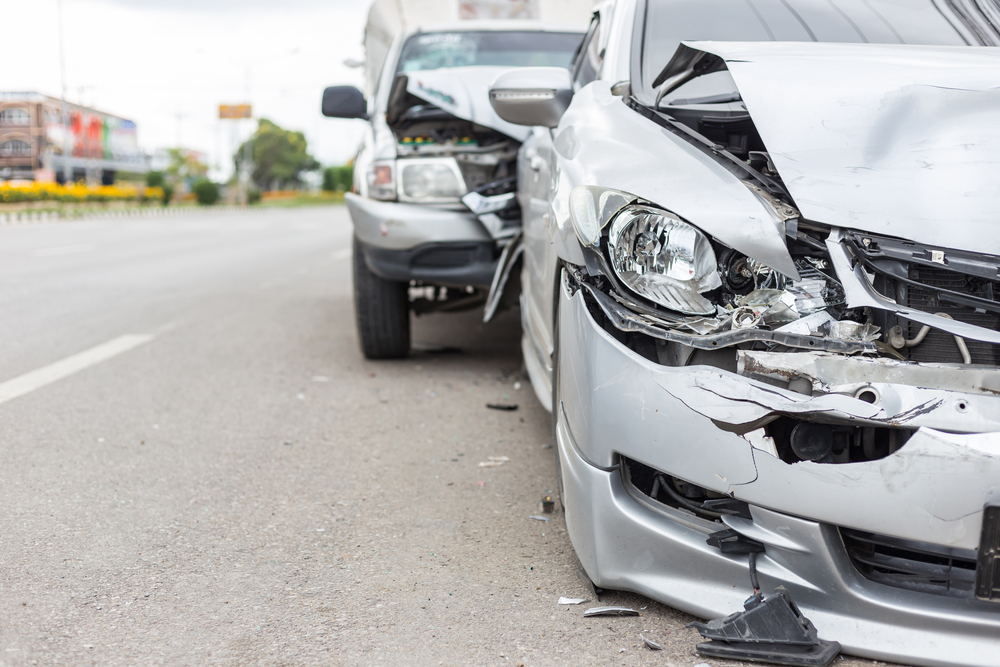You may be pretty familiar with reporting and handling a car accident that you are involved in when you are one of the drivers, but do you know what happens when someone else is driving your car and gets into an accident? Whose car insurance covers the accident? Who is held responsible for any injuries?
What to Do Immediately After the Accident
What happens after an accident involving a borrowed car depends on several factors, including whether you gave your friend or family member permission to drive your vehicle. To help you navigate this complex process, we have provided an overview of the steps to take when your borrowed car is involved in an accident.
Report and Document the Accident
As soon as the accident happens, you or the driver should contact local law enforcement and report the accident. This will create an official record of the incident that you will need for your insurance claim. Additionally, make sure you or the driver takes pictures of the scene, damage to any property, and any sustained injuries. Finally, gather information from witnesses, recording what they saw and getting their contact information.
Seek Medical Treatment
If the driver or anyone in the vehicle at the time of the accident was injured, they should seek medical treatment immediately. An emergency room or urgent care visit will create evidence that injuries were sustained during the accident. This documentation will be necessary for filing personal injury claims. The insurance company may question the legitimacy and severity of the injuries if they are not treated right away.
Understand Your Insurance Coverage
As the owner of the vehicle, you will need to report the accident to your insurance company. You must make this claim as soon as possible. It will be helpful to know what your insurance policy covers, and if you’re not sure what this is, your attorney can help you look into it.
It is also helpful to note that car insurance follows the vehicle and not the driver. This means that if your car is insured, then you will be responsible for covering the accident — whether or not the person driving your vehicle is also insured under their own policy.
If your insurance policy does not include collision coverage, damages to your car will not be covered. Whether or not collision coverage is provided, the vehicle’s deductible still applies. The car owner is ultimately responsible for the full amount of the deductible, but the owner and at-fault driver can decide how they will pay the deductible.
Suppose the driver of your vehicle has their own insurance. In that case, their liability coverage may be able to pay for the rest of the costs to repair any damages that your insurance policy was not able to cover. If the driver is uninsured and the costs of the car accident exceed your policy’s limits, you’ll be entirely responsible.
In the event that a person does not have permission to borrow your car but takes it anyway, and then an accident occurs, you will not be held responsible for the accident. The driver and their insurance company will need to cover the damages.
Turn to a Car Accident Lawyer
Since every car accident is different, it is best to seek legal counsel from a car accident attorney. An experienced lawyer can help you get compensation for vehicle damages and personal injuries. Insurance companies are always seeking ways to undercut costs and may pay out less than you deserve. A car accident lawyer will ensure this will not happen to you.
Factors Impacting Liability
Several factors can determine whether you will be responsible for covering the costs when someone borrows your car and causes a collision. You might believe that you should not be held accountable since you were not driving the vehicle at the time of the accident. However, this is not always the case. Some factors that can influence whether you are liable for the victim’s damages include:
- Whether the driver is a family member from another area
- Whether your car was stolen
- Whether your auto insurance policy covers the individual who was driving your car at the time of the accident
- Whether your policy excludes specific drivers from coverage
- Whether the driver is a family member who lives in the same home as you
- Whether your car was borrowed by someone without your permission
- Whether you gave the driver the keys to your vehicle knowing that your insurance excluded them
Implied Permission vs. No Permission
You should rarely, if ever, be held accountable if someone steals your vehicle and causes a car accident. However, there are several situations in which understanding implied permission versus no permission is crucial.
If a friend of yours has auto insurance and takes your vehicle without permission, their insurance coverage would be the primary policy. However, yours may apply as secondary insurance if your friend’s insurance coverage is insufficient.
However, if your friend does not have auto insurance, your insurance company may be obligated to cover the victim’s damages if your friend had implied permission to use your vehicle.
Some factors the insurance company will take into account include:
- Whether you previously gave your friend permission to use the vehicle
- Whether your friend had an assumption of permission
- Whether you left your keys in a location that was easily accessible to your friend
- Whether your friend lives in the same home as you
If the insurance company determines there was no implied permission in your case, they will not pay out on any claims that may be filed. However, if implied permission does exist, they may process claims and increase your auto insurance rates when it is time for your policy to renew.
Getting Compensated for Damages
With your vehicle damage, you may be wondering how to recover compensation for vehicle repairs and any other property damage losses. If the person who borrowed your car does not have auto insurance coverage, you may not be able to file a claim with their auto insurance company. If you are reading our page, it is unlikely that your friend is willing to work out a payment arrangement that they will stick to in order to cover your expenses.
However, you may have the option to file a civil liability claim against them, seeking total reimbursement of your property damages. According to Pennsylvania Consolidated Statutes Title 42 section 5524, you have up to two years from the date of the incident to file your claim in civil court. Failure to do so means you will lose your chance to recover the compensation you might have otherwise been entitled to.
Will Your Insurance Rates Increase?
It is likely. If your insurer pays the claim for the accident, you, as the owner of the motor vehicle, can expect higher premiums. As far as they are concerned, the vehicle attached to the claim is what matters, not the driver. And, in the worst case scenario, the fact your friend had his accident while texting – if that is in the police report – your carrier could simply decide not to pay. Any way you look at it, an innocent gesture could wind up with costs you never imagined. That is why, the next time a friend asks to borrow your ride, think about the risks.
What Do I Do If Someone Borrows My Car and Wrecks It?
When your car is involved in a car accident, you do not want to leave anything to chance. Working with a car accident lawyer in Philadelphia, can help you get the compensation you are entitled to when you are not at fault. At Kalikhman & Rayz, LLC, our attorneys are experienced in helping car accident victims pursue the money to cover any damages.
Contact our law office today to schedule your free consultation to discuss your car accident or your need for a personal injury attorney in Montgomery County.









